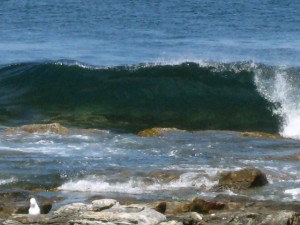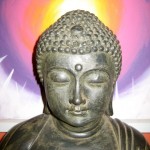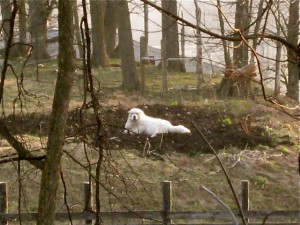
Every shamanic gathering I ever attended began with the leader standing at the podium awaiting silence. Then, in ritual format, he/she would state: “My name is __________. I am a being who is going to die.”
Those shamans have learned, through their many journeys through different realities, that it is critical to establish—state with intent—a clear definition of who they are—a name—which serves to hold them together as they confront the myriad of forces present in the world they are interacting with or traveling through. In this world, they add the caveat “a being who is going to die” to acknowledge the limits of the human form, indeed a being on its way to dying.
To state our name before all of infinity is to assume definite responsibility for the life we are living. This is not an act of inflation, of hubris, but an act of validation. I exist in definite form; I assume responsibility for my life.
In the psychological world, our hero self—our ego—must establish itself in relation to the power and infinitude of the personal and collective unconscious. To give our self a name is the beginning of consciousness. “In the beginning was the word, and the word became man.” (John 1:14) Without a name we don’t exist, we are nothing, merged with everything. To exist we must establish ourselves, affirm ourselves, give ourselves a rightful place in the world as a named being.
Many people, especially during recapitulation, must contend with tidal waves of energetic onslaughts from the deep unconscious that threaten to dissolve reality and identity. The experience might be pervasive nausea, dizziness, or disorienting out-of-body energy states, the sensation of being on an endless roller coaster riding at light speed in reverse, into the darkness without pause.

In such moments, we are threatened with a return to original chaos. We visit the land before time, the cosmic sludge, life without definition, without awareness, life without consciousness, for all intents and purposes, death.
Although we may have little or no control over our threatening encounters with our deeper energetic selves, we can and must, as we ride and are tossed about by those giant waves, state, with conviction: I am So-and-So! Stating our name over and over again, adding any caveat we choose, affirms the intent to remain a consolidated, sane being in this world no matter what we must face, establishing an ark to survive the floods of emotion, memory or sensate intensity. Beyond this, that ark establishes a boundary, a separateness, an observing perspective beyond the onslaught, the eye of the storm that offers cohesion and sobriety amidst the chaos.
Remember, as well, that the selves we establish are part of, and fully, the intent of original chaos. Nature chose to become conscious. Human beings reflect that intent, however poorly they manage it. Nature ultimately respects and supports our attempts at consciousness as we define ourselves and describe our world. It may insert an adjustment, a clarification of the true nature of things as it floods our consciousness, but, in the end, it seeks to further consciousness. Clearly establishing your name before it, is an act it will support.
During her own recapitulation journey, Jan encountered the chaos during a dream, a natural part of her process of self-realization and individuation. From her book, The Man in the Woods:
May 1, 2002
In a dream, I write my name in large script across my arm with a big black marker. Suddenly I don’t know who I am; I feel no connection to the name I’m writing, I don’t even recognize it. I don’t even recognize my own handwriting. I begin to panic as I enter an impersonal state, aware that I am nothing. I have no personality, no individual characteristics that I can identify. I no longer recognize myself because I am nonexistent.
“I don’t know who I am,” I say, panic rising higher, but then I calm down as I hear Chuck’s voice telling me that I can fix my dreams, that I can fix anything.
“It’s okay. You’ll be fine,” he advises. “You are you. Just let yourself be you.”
“Just let yourself be you. Just let yourself be you. Just let yourself be you,” I tenderly recite to myself, soothing my panic.
I wake up; those words flowing off my tongue.

In the midst of traumatic recapitulation, as Jan establishes in her dream, it’s important to to remain anchored and aware of the self. Be you. State your name over and over again and the waves will subside. The naming will gain further clarity, as the treasures and trinkets left on the beach as the waves recede are sifted through. In further naming the artifacts of life lived, by more clearly knowing our personal history, we can shed its impact. Identified, named, and filed away, it loses its energetic punch, just as the chaos did in Jan’s dream.
Affirming the self via name also establishes a base for relationship as the ego/hero self can interact and form relationships with the unconscious selves, be they split off parts of the self or entities in the forms of beliefs and thoughts that don’t belong to the self and need to be cast off. Through naming, we anchor ourselves, finding clarity and healing.
State your name. State your intent to remain and become whole. Whether in the midst of recapitulation or facing the everyday onslaughts of life itself, you are a being on its way to fulfillment.
In closing: My name is Chuck Ketchel, a being on the way to fulfillment.








